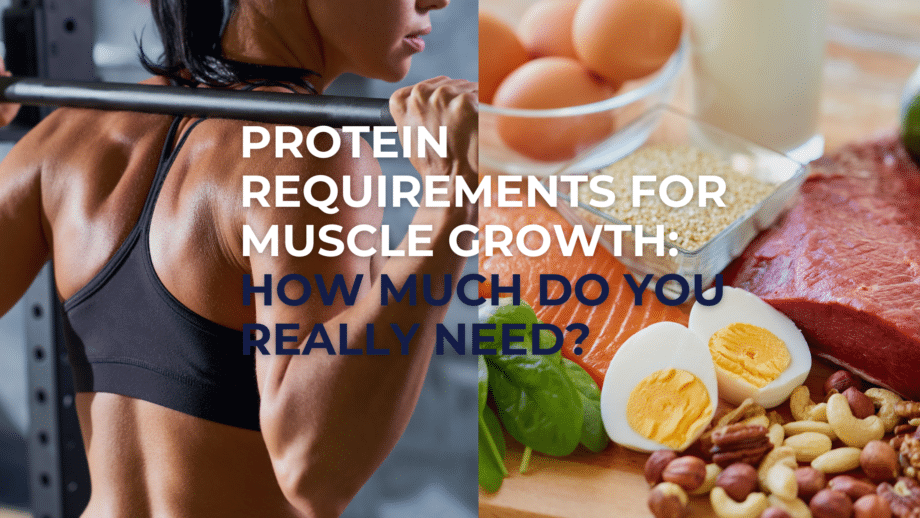Building muscle takes more than just showing up at the gym. One of the most critical pieces of the puzzle? Protein. But how much do you really need to eat to pack on muscle effectively? Let’s dive into the science of protein requirements for muscle growth, debunk common myths, and give you practical tips for hitting your goals.
Why Is Protein So Important for Muscle Building?
Protein is the building block of your muscles. When you lift weights or do any kind of resistance training, your muscle fibers experience tiny tears. Protein helps repair and rebuild these fibers, making them bigger and stronger over time. Without enough protein, your body won’t have the raw materials it needs to recover from workouts or build muscle effectively.
But here’s the catch: too little protein and you’ll struggle to see gains, while too much protein isn’t necessarily better (or worth the extra calories). So, how do you find the sweet spot?
How Much Protein Do You Need to Build Muscle?
Let’s get to the heart of the matter. How much protein should you consume daily if you’re looking to build muscle? Here’s what the research says:
- General Guideline:
For those actively trying to build muscle, aim for 1.6–2.2 grams of protein per kilogram of body weight per day. That’s roughly 0.8–1 gram of protein per pound of body weight. - Example Calculation:
If you weigh 70 kg (about 154 lbs), your daily protein intake should fall between 112–154 grams.
This range provides enough protein to optimize muscle growth without overdoing it. Of course, your specific needs may vary based on factors like activity level, body composition, and goals.
Best Protein Sources for Muscle Growth
Not all protein is created equal. When choosing your protein sources, focus on those rich in essential amino acids – especially leucine, the amino acid most responsible for kickstarting muscle protein synthesis.
Here are some top picks:
- Animal-Based Sources:
- Chicken breast
- Turkey
- Lean beef
- Eggs
- Fish (like salmon, tuna, cod)
- Dairy products (Greek yogurt, cottage cheese, milk)
- Plant-Based Sources:
- Lentils
- Chickpeas
- Black beans
- Tofu
- Tempeh
- Quinoa
- Edamame
If you’re plant-based, you might need to mix and match protein sources to ensure you’re getting all nine essential amino acids. A combo like rice and beans or hummus with whole-grain pita works wonders.
Protein and Calorie Balance: Why Context Matters
One mistake people often make is focusing solely on protein while ignoring overall calorie intake. If you’re not eating enough calories, you won’t build muscle – even if your protein intake is on point.
Building muscle requires a caloric surplus, meaning you need to consume more calories than you burn. Make sure you’re eating plenty of carbs and healthy fats in addition to protein to fuel your workouts and recovery.
FAQs About Protein and Muscle Growth
1. Can I build muscle on a plant-based diet?
Absolutely! As long as you’re eating enough protein and calories, plant-based diets can support muscle growth. Just focus on high-protein foods like tofu, tempeh, and legumes, and consider supplementing with vegan protein powders if needed.
2. Is timing protein after a workout important?
Yes! Consuming 20–30 grams of protein within 1–2 hours after your workout can enhance recovery and muscle growth.
3. Should I eat protein before bed?
If muscle building is your goal, a slow-digesting protein like casein (found in Greek yogurt or cottage cheese) before bed can support overnight muscle repair.
Final Thoughts: Get Smart About Your Protein Intake
Building muscle isn’t rocket science, but it does take planning. Get your protein intake in the right range, balance it with carbs and fats, and spread it out across your day for the best results. And don’t forget – consistency is key. Stick to your routine, and your hard work in the gym will pay off in no time.

